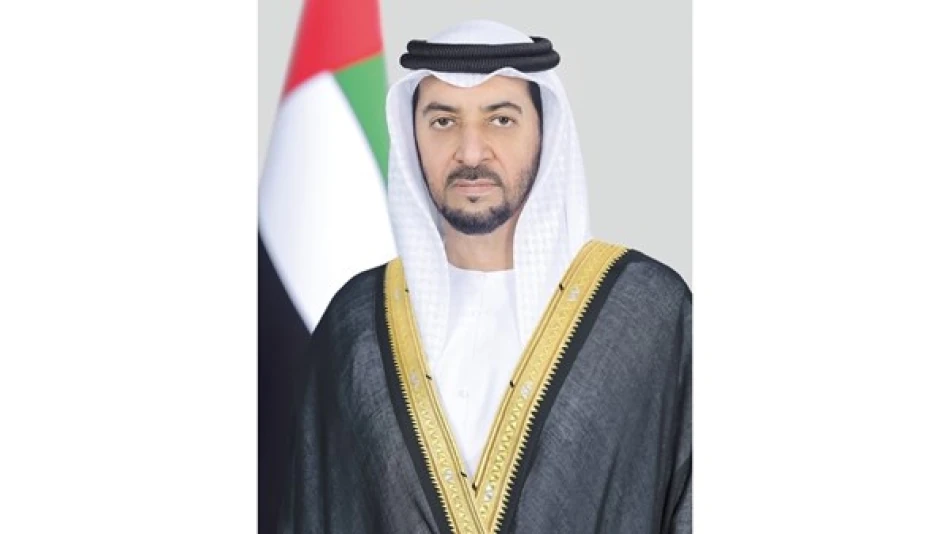
Emirati Leader Praises National Service Program Trainees' Impressive Demonstrations
UAE's National Service Program Showcases Military Readiness as Regional Tensions Mount
Sheikh Hamdan bin Zayed Al Nahyan, the Ruler's Representative in Al Dhafra Region, praised the intensive training achievements of the 22nd batch of UAE National Service recruits during specialized military demonstrations. The comprehensive program, encompassing military sciences, physical fitness, combat arts, and military discipline, reflects the Emirates' continued investment in building a skilled defense force amid evolving regional security challenges.
Comprehensive Military Training Takes Center Stage
The specialized demonstrations highlighted the multi-faceted approach of the UAE's National Service Program, which has evolved into a cornerstone of the country's defense strategy. The 22nd batch of recruits showcased capabilities across military sciences, physical conditioning, combat techniques, and disciplinary protocols—areas that have been systematically enhanced since the program's inception.
Sheikh Hamdan's attendance underscores the high-level government commitment to maintaining military readiness standards. His presence at the demonstrations signals that the UAE views its National Service Program not merely as a civic duty, but as a strategic asset in regional defense planning.
Strategic Context: Gulf Defense Modernization
Regional Security Imperatives
The UAE's emphasis on military training quality comes at a time when Gulf states are modernizing their defense capabilities. Unlike Saudi Arabia's focus on large-scale military procurement or Qatar's reliance on international partnerships, the Emirates has pursued a dual strategy of advanced technology acquisition and human capital development.
The National Service Program, mandatory for Emirati men and voluntary for women, represents a significant shift from traditional Gulf defense models that historically relied heavily on expatriate military expertise and foreign contractors.
Comparison with Regional Programs
While Kuwait and Bahrain maintain smaller, professional military forces, the UAE's approach mirrors Israel's model of combining mandatory service with specialized training tracks. This strategy aims to create a technically proficient reserve force that can integrate with the country's increasingly sophisticated military technology.
Investment in Defense Human Capital
The program's emphasis on military sciences alongside traditional combat training reflects the UAE's recognition that modern warfare requires technological literacy as much as physical prowess. This approach aligns with the country's broader Vision 2071 initiative, which prioritizes human capital development across all sectors.
For defense analysts, the continued high-level attention to National Service quality suggests the UAE is building long-term military resilience rather than simply fulfilling ceremonial obligations. The program's evolution over 22 batches indicates systematic refinement based on performance metrics and changing security requirements.
Implications for Regional Stability
The UAE's investment in comprehensive military training serves multiple strategic purposes. Domestically, it builds national cohesion and technical skills among young Emiratis. Regionally, it demonstrates the country's commitment to self-reliance in defense matters, potentially reducing dependence on foreign military support.
As Gulf states navigate complex relationships with global powers while managing regional threats, the UAE's focus on building indigenous military capabilities through programs like National Service represents a pragmatic approach to long-term security planning. The program's success could influence similar initiatives across the Gulf Cooperation Council, where youth engagement and defense preparedness remain critical policy challenges.
Most Viewed News

 Layla Al Mansoori
Layla Al Mansoori






